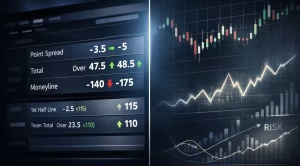The Impact of Dopamine on Betting Behavior: The Science Behind Wins
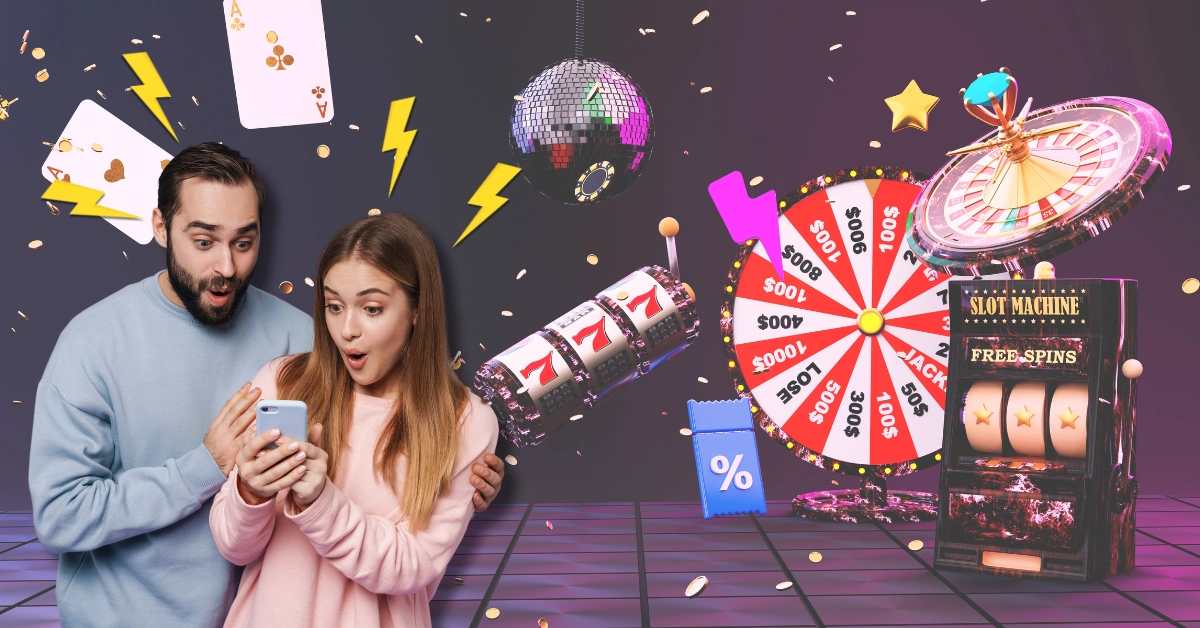
Dopamine is our brain’s little “feel-good” deliverer. It kicks into gear when you take that first bite of your all-time fav food, get a compliment, or, yup, win a bet when you’re gambling. That surge you feel after a win? That’s your brain lighting up with a dopamine rush. It feels amazing! But beware: this dopamine rush is addictive, and it can make you want to chase that feeling over and over again.
So, what exactly is going on in that noggin of yours when you win a bet? How does this dopamine factor into betting, and why does it sometimes push people into patterns they didn’t expect to happen? It’s actually quite scientific, so we are going to dig into these dopamine receptors and find out how this chemical affects your brain during gambling and why understanding it all will help you make smarter, more informed decisions the next time you are making a bet!
What Is Dopamine?
Dopamine is one of the brain’s main neurotransmitters—it’s a chemical messenger that plays a central role in how we experience pleasure, motivation, and reward.
Every time you do something that feels good, like hearing your favorite song winning when you’re gambling, that dopamine kicks in to reinforce that behavior. Think of dopamine as your brain’s way of giving you a little thumbs-up for doing something it sees as a positive thing and nudging you to repeat it. But there’s a catch (isn’t there always)? The reward system can get hijacked and turn into habits that aren’t always good for us.
How It Works
Dopamine doesn’t just make you feel good—it forms habits. When you take part in an activity that releases dopamine, your brain creates a mental note: “OMG, this feels really good. More of this please, do it again!” As time goes by, the mechanism reinforces behaviors, good or bad, creating a feedback loop that pushes you to seek out those rewarding activities again.
This is why dopamine is so closely linked to addiction. As you repeat certain actions, the brain will start requiring more of that behavior to get the same pleasurable feeling—a process that is known as tolerance. Over time, what starts as a casual behavior (like a bet or scrolling through social media) can turn into something that is much harder to break away from.
Common Triggers for Dopamine Spikes
There are countless things that can set off a dopamine release, and not all of them are bad! Below is a list of everyday experiences that cause dopamine surges, from the healthy to the possibly addictive:
- Food: Whether it’s biting into a slice of pizza or partaking in a sweet dessert, food—especially ones high in sugar, fat, or carbs—releases dopamine, making eating a pleasurable experience. This is why the comfort foods we love can be really hard to resist. When we indulge in sugary or fatty treats, our brain rewards us, which can result in cravings.
- Social Media: Getting likes, comments, or messages gives your brain little baby hits of dopamine, kind of like hitting a compliment mini jackpot. The instant gratification we get from such interactions makes social media super addictive, with each notification serving as a reward.
- Betting and Gambling: The unpredictability of gambling, especially the excitement of actually winning, causes sharp dopamine spikes. Whether it comes from poker games, slot machines, or sports betting, the possibility of a win keeps people coming back. It’s not just the actual win but the excitement of the “near-miss” that draws people to it.
- Exercise: Doing physical activity, especially intense exercise like running or cycling, releases dopamine, and it is usually described as a “runner’s high.” It doesn’t just improve your mood—it can also help manage stress, which explains why people feel more relaxed and happy after working out.
- Music: Listening to your favorite songs also causes dopamine spikes, especially during emotionally charged moments in the music. That’s why songs that make you feel something deep down in your soul have such a lasting effect—they’re literally playing with your brain chemistry!
- Sex: As one of the most natural ways to experience pleasure, sexual activity triggers the release of dopamine, reinforcing intimacy and bonding between romantic partners. This is part of why sex is such a powerful driver of human behavior.
- Drugs and Alcohol: Substances like cocaine, meth, nicotine, alcohol, and others cause rapid, intense dopamine surges, which is why they are highly addictive. The substances tap directly into the brain’s reward system, creating feelings of euphoria and the reinforcement of continued use.
- Shopping: For some (me), the high of buying something new triggers a dopamine rush. The anticipation of acquiring something, especially if it’s been something you’ve wanted for a while, gives your brain a reward. And it isn’t just that you’re buying something new—it’s the anticipation when you step into a store.
- Winning or Accomplishing Goals: Whether it’s completing a big project at work, winning a game, or finally mastering a skill, reaching a goal sets off a sweet rush of dopamine. This is an encouragement for you to set more goals and continue working toward achievements, as it reinforces that hard work pays off.
- New Experiences: Dopamine loves novelty. Trying something new—like visiting a new place, tasting a different cuisine, or learning something—lights up the brain’s reward system. The element of surprise or discovery creates an extra buzz, which explains why some people are so drawn to new experiences and adventures.
The Science Behind Wins and Dopamine Release
Winning affects your brain in ways you probably don’t even realize—when you win a bet, whether it’s a big or small one, your brain sends out dopamine. It’s the same stuff that floods your brain when you do something that makes you feel happy. But in gambling, that dopamine rush doesn’t just make you feel good—it sets up a pattern that can make it hard to stop. Winning lights up your brain, and all you want is to chase that feeling down again.
Below, we’ll look at how gambling wins affect your brain chemistry, why instant gratification makes gambling so hard to resist, and why those “almost” wins—near misses—keep you on the hook even when you’re losing!
Wins and the Brain
Every time you win a bet, your brain rewards you by releasing a flood of dopamine. It’s like a little high, making you feel great and reinforcing that behavior. This is your brain’s way of saying, “Hey, that felt good! Do it again!” What makes this even more powerful is that gambling is unpredictable. Your brain loves surprises, and when you win unexpectedly, it triggers a bigger dopamine release than if the win were guaranteed.
This is where things get tricky. Because your brain links that win with a rush of dopamine, it pushes you to keep betting, hoping for another hit. Even small wins can set off this pattern. It’s not necessarily about how big the win is; it’s about the brain associating betting with pleasure. Over time, your brain starts to crave that feeling, and it gets harder to walk away, even when you’re losing.
Instant Gratification
One of the biggest draws of gambling is how quickly you get results. You place a bet, and within seconds, you either win or lose. This instant feedback is a huge trigger for dopamine. The faster the reward, the bigger the dopamine rush. Your brain is wired to love quick results, and gambling gives that in spades. Whether it’s a slot machine spinning or a sports game wrapping up, you get an almost immediate answer—win or lose—and your brain lights up when it’s a win.
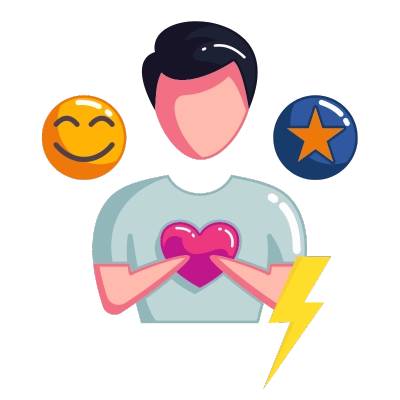
This is why gambling can feel so addictive. Every time you win, dopamine floods your brain and makes you feel like you’re on top of the world. The problem? This instant gratification keeps you coming back for more, even when you know the odds aren’t in your favor. Your brain craves that dopamine hit, and gambling provides a quick, easy way to get it.
What makes gambling different from other dopamine triggers, like eating or socializing, is how fast the rewards come. You don’t have to wait. The quicker the outcome, the faster your brain gets that dopamine boost, which can make it harder to stop. When you’re winning, it feels incredible, and when you’re losing, your brain tells you to keep going because the next win is just around the corner.
The ‘Near Miss’ Phenomenon
Now, here’s where things get really sneaky: the “near miss” phenomenon. Imagine spinning a slot machine and seeing two matching symbols line up, only for the third one to fall just short. You didn’t win, but you were so close. Logically, a near miss is still a loss, right? But your brain doesn’t see it that way.
Studies show that near misses trigger a dopamine release almost as powerful as a win. Why? Because your brain interprets that near miss as being right on the edge of success. It tricks you into thinking you were so close that the next spin might be the one that hits. This keeps you engaged, even when you’re technically losing.
Near misses are a huge part of what makes gambling so addictive. Your brain gets a dopamine hit from the thrill of being close to a win, and this encourages you to keep playing.
In fact, near misses can be even more motivating than actual wins because they make you feel like you’re on the verge of success. This psychological trickery keeps people coming back for more, even when the losses start piling up.
Gambling companies know this, which is why slot machines and other games are designed to deliver near misses frequently. These moments keep your brain hooked, releasing dopamine and convincing you that just one more bet could be the winner. It’s all part of how the reward system in your brain works—chasing that next dopamine hit, even when logic says it’s time to walk away.
Dopamine’s Role in Betting Behavior
When you place a bet, there’s more going on than just hoping for luck. Every bet you make taps into your brain’s chemistry, pushing you toward patterns that can be tough to break. Let’s unpack how the brain locks into these habits and what drives the urge to keep going back for more.
Reinforcement of Behavior
Winning a bet is satisfying, no doubt. But the real action happens behind the scenes, in your brain. When you win, it sets off a chain reaction that reinforces the behaviors that led to that victory. Your brain associates the positive feelings from winning with betting, encouraging you to try again, even if losses follow. Over time, these neural pathways get stronger, making it harder to resist the urge to place another bet.
What makes this reinforcement so tricky is that it doesn’t just happen when you win big. Even a small win, or a “near miss,” can activate the same reward systems, pushing you to keep betting. It’s as if your brain gets tricked into thinking, “I was so close, I should keep going”. This keeps you in the game, chasing that feeling of being on the brink of a win, even when it’s unlikely.
Chasing Wins
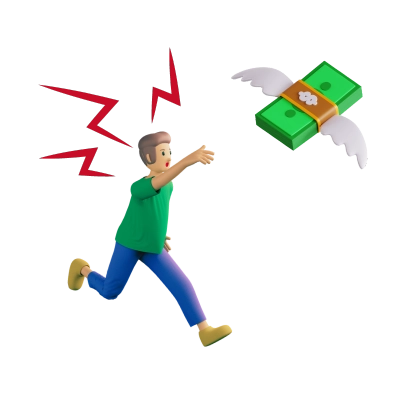
Once you’ve felt that rush, it’s tempting to chase it, especially after a few losses. This is where things can get dangerous. After a win, your brain craves that high again, pushing you to bet more, hoping to feel the same way. But as you continue, something interesting happens: your brain starts building tolerance. The same-size wins don’t feel quite as exciting, and you may find yourself betting larger amounts just to get that same rush.
This cycle of chasing after wins isn’t limited to trying to repeat the feeling of success—it also kicks in when you’re on a losing streak. After several losses, many gamblers feel like they need to keep betting in order to win back what they lost. This “chasing losses” mindset is dangerous, as it can lead to bigger bets and even bigger losses. The logic goes: one big win will fix everything. But the reality is the odds rarely work in your favor, and chasing wins can dig you deeper into trouble.
The Thrill of Risk
One of the most powerful forces in gambling is the anticipation that comes with taking risks. It’s not just the win that gets people excited—it’s the build-up, the “what if.” When you’re about to place a bet, the excitement of a potential win causes a surge in dopamine, even before the outcome is revealed. This feeling of suspense is what makes betting so addictive. The anticipation alone is enough to keep you coming back for more, as your brain is primed for a reward.
What’s even more fascinating is how taking bigger risks leads to an even greater sense of anticipation. The higher the stakes, the more dopamine your brain releases, driving you to push your limits.
But here’s the catch: this rush can cloud your judgment, making you more likely to make impulsive decisions that you wouldn’t normally consider. That sense of thrill from the risk is intoxicating, making it harder to slow down or step back when you’re deep into a game.
Betting pulls on deep psychological and neurological strings that can make it feel nearly impossible to stop. The cycle of reinforcement, chasing wins, and the thrill of risk all tie back to how your brain reacts, making it hard to resist the urge to keep going. Understanding what’s happening in your brain during these moments can be the first step toward recognizing why betting feels so compelling and why stepping away can sometimes be the smartest move.
The Dark Side: Dopamine and Gambling Addiction
Gambling doesn’t just impact your bank account—it hooks your brain in ways that can make quitting feel like an impossible feat. Every bet, whether you win or lose, screws with your brain chemistry, especially dopamine. It starts out with a little thrill, but over time, the cycle can trap you into compulsive behavior that’s hard to get over. Let’s find out how regularly betting overstimulates your brain, the warning signs of addiction, and how the cycle of needing higher stakes can take over.
The Dopamine Trap
At first, gambling feels like harmless fun—a bit of excitement, a chance to win some money. And it usually stays that way for most people! But every time you place a bet, your brain releases dopamine, and your brain is taking notes: it starts associating gambling with positive feelings, pushing you to keep going back for that rush.
The problem is that the more you gamble, the more your brain craves that dopamine hit.
Eventually, the same amount of betting doesn’t deliver that high anymore. Your brain gets overstimulated, and you need bigger bets to feel the same high. and overstimulation can cause compulsive behavior, which makes it harder to walk away, even when you’re losing.
Signs of Addiction
Gambling addiction can creep up on you, but there are some obvious signs that things might be getting out of control. If any of these behaviors sound familiar, it might be time to take a closer look at your habits and consider whether gambling is becoming a problem.
- Obsessive thoughts about betting: Constantly thinking about gambling, planning your next bet, or reliving past wins is a red flag. You might find that it’s on your mind, even when you’re not at the casino or logged onto a gambling site.
- Increasing bets to feel the same level of excitement: As your brain adapts to the dopamine rush, you’ll need higher stakes to get that same thrill. What started as small, manageable bets can turn into riskier behavior with larger amounts on the line.
- Difficulty stopping or controlling betting behavior: One of the biggest signs of addiction is feeling unable to stop, even when you know it’s hurting you financially or emotionally. If you’ve tried to quit or cut back but can’t, it is time to reach out for help.
- Gambling to escape problems or negative emotions: Many people use gambling as a way to avoid dealing with stress, anxiety, or personal problems. When it becomes a coping mechanism rather than entertainment, this is a sign of addiction.
- Hiding gambling behavior: If you find yourself lying to friends, family, or colleagues about how much time or money you’re spending on gambling or trying to conceal the extent of your betting, that’s a major warning sign.
- Chasing losses: This refers to the tendency to bet more after losing, all in the hopes of winning back what was lost. Chasing losses only leads to bigger, more desperate bets, which compounds the problem.
- Neglecting responsibilities: When gambling starts interfering with your work, school, or family obligations, it’s a sure sign that your behavior has become compulsive.
- Using gambling as a financial solution: If you’re relying on a win to solve financial problems or pay off debts, instead of seeing gambling as it is meant to be—a fun pastime—it’s a crystal clear sign of trouble.
- Borrowing or stealing to gamble: Some people in the grip of gambling addiction go to extreme lengths to keep gambling, including borrowing money they can’t repay or stealing.
- Mood swings related to gambling: Emotional highs and lows that are tied directly to wins or losses—including feelings of euphoria when winning and frustration or depression after losing—are really strong indicators of a gambling problem.
Recognizing these signs can help you determine whether your gambling is starting to control you instead of the other way around.
The Cycle of Addiction
Once you’re stuck in the cycle, gambling becomes less about the fun and more about feeding that dopamine craving. Your brain starts to require higher stakes just to feel normal again. Early wins may have sparked excitement, but as addiction takes hold, even those highs become muted. Now, the brain craves riskier bets, pushing you to chase larger wins just to keep up with the tolerance you’ve built.
This cycle can lead to more desperate behavior. As the stakes get higher and the losses add up, many gamblers try to “win back” their losses, digging themselves deeper into the hole. But that next big win, the one that will supposedly fix everything, usually doesn’t come, keeping people trapped.
Gambling addiction isn’t just about taking risks—it’s a chemical trap that’s hard to escape once your brain is hooked on the highs. Recognizing the signs and understanding how dopamine drives these behaviors can be a crucial first step in breaking free. If any of this sounds familiar, it might be time to take a step back and consider reaching out for support.
How the Gambling Industry Leverages Dopamine
The gambling industry has mastered the art of manipulating the brain’s dopamine system to keep players engaged. The games are designed to trigger emotional highs, making it harder for you to stop playing. They do this through game mechanics, bonus systems, and reward programs, and casinos and online gambling sites know exactly how to keep you coming back for a possible win, even if it never happens. How do they do it? Keep scrolling to find out!
Every time you spin a slot machine or place a bet online, there’s more happening than meets the eye. These games are designed to engage multiple senses at once—bright colors, flashing lights, and carefully chosen sound effects all contribute to an experience that’s meant to keep your brain hooked.
Slot machines, for example, are masters of sensory overload. The reels spin in colorful bursts of motion, accompanied by upbeat music or the familiar jingle of coins. Every sound and flash of light is designed to keep you focused and excited, even if you’re not winning. And when you do win? The machine amplifies that with celebratory sounds and flashing visuals to make even small wins feel like huge successes.
One of the most powerful tools in game design is unpredictability. Most casino games, like slots, use variable rewards—where you don’t know when or how big your next win will be. This taps into the brain’s reward system, releasing dopamine each time you feel like a win might be coming. The uncertainty is part of the excitement, keeping you engaged and eager to place “just one more bet”.
Casinos also play on near misses—those times when you almost win but fall just short. A near miss triggers the same parts of your brain as a win does, making it feel like success is right around the corner. This feeling can be so powerful that many players will keep going, convinced that the next spin or hand will be the one that hits.
What keeps a player coming back after a losing streak? Often, it’s the promise of big wins. Jackpots, especially progressive jackpots that grow over time dangle the idea of life-changing money right in front of you. The chance of hitting that one huge win creates a powerful dopamine response, even if the actual odds of winning are extremely low.
But it’s not just about the jackpot. Gambling platforms and casinos use bonus systems like free spins, mini-games, and bonus rounds to keep players engaged. These bonuses often don’t add much money to your wallet, but they create a psychological reward, giving you a dopamine hit that encourages continued play. Even when the winnings are small, these bonus features make it feel like you’re progressing, which can keep you at the machine or app longer than planned.
Casinos understand that players are more likely to stick around if they feel they’re always one spin or card away from a big payout. This is why they strategically offer frequent small wins—to keep players feeling like they’re making progress, even if the net outcome is a loss.
Casinos are super savvy about turning regular players into loyal ones through VIP programs and loyalty rewards. These systems are designed to make you feel special—whether through personalized bonuses, faster customer service, or access to exclusive games and events. Each level of a loyalty program or VIP club is tied to perks, which keeps players coming back to unlock more rewards.
Loyalty programs use the same dopamine-driven psychology as slot machines. Just like variable rewards in games, these programs give out bonuses intermittently. This creates a cycle where players keep playing to reach the next milestone or unlock the next perk. The sense of progression and the promise of rewards tap into our natural desire for achievement, making it harder to walk away.
For instance, a player who reaches the next level in a VIP program may receive free spins or a small cash bonus. Even though the rewards may not be significant in terms of money, the psychological impact is powerful. Players feel like they’re being rewarded for their time and loyalty, which reinforces their decision to keep playing.
In the gambling arena, every single design element—whether it’s the flashing lights on a slot machine, the promise of a jackpot, or the temptation of a VIP reward—is crafted to trigger the brain’s dopamine system. The goal is a simple one: to keep players engaged and make it really difficult for them to stop playing. Understanding the tactics can help players make better decisions and know when the games are manipulating their emotions.
Understanding the Risks: Protecting Yourself from Dopamine-Driven Betting
Betting can be exhilarating, but it’s not just the money or the competition that hooks you—it’s your brain’s chemistry at work. When you place a bet, win, or even come close, your brain releases dopamine, a chemical that makes you feel great and keeps you coming back for more. But when dopamine starts driving your decisions, it can become a slippery slope. Luckily, by being mindful, setting limits, taking breaks, and knowing when to seek help, you can enjoy betting without falling into unhealthy patterns.
Mindfulness and Awareness
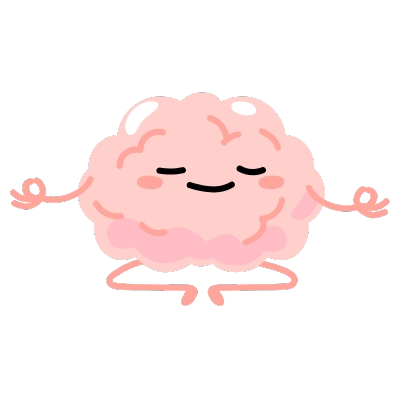
The best way to protect yourself from dopamine-driven betting is simple: awareness. It’s easy to get caught up in the excitement of the moment, especially when you’re on a roll or anticipating a win. That’s when dopamine kicks in and makes everything feel amplified. When you understand how dopamine affects your behavior, you can take a step back and evaluate your actions.
Are you betting because you genuinely want to, or is it because you’re chasing that feel-good rush? Mindfulness is all about staying present and recognizing what’s driving your actions. It helps you pause and ask yourself if you’re making rational decisions or if your brain is pushing you to place “just one more” bet to get that dopamine hit. Practicing mindfulness could mean checking in with yourself during a game, paying attention to your emotions, and being honest about why you’re continuing to play. This self-awareness can be a game-changer.
Set Limits
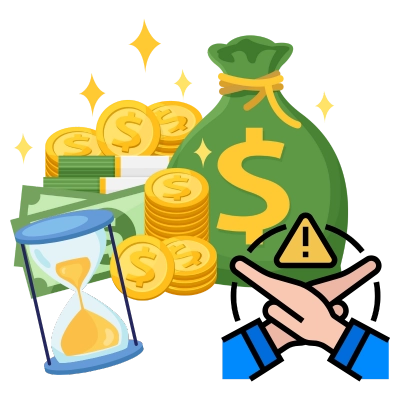
Setting clear boundaries is another practical way to avoid falling into the dopamine trap. It’s easy to lose track of time and money when you’re caught up in the excitement, which is why limits are crucial. Before you start betting, decide how much time you’ll spend and how much money you’re willing to risk. Setting a budget beforehand ensures that you don’t go overboard chasing wins, and it forces you to stick to realistic amounts. Think of it like having a safety net—you’re free to have fun, but you know exactly where the boundaries are.
Another important aspect of setting limits is deciding when to walk away. Sometimes, it’s not about the money; it’s about knowing when you’ve hit your emotional threshold. If you start feeling overwhelmed, frustrated, or overly confident, that might be a sign that your brain is chasing a dopamine high. Walking away can be tough, especially when you feel like a win is right around the corner, but stepping back before things spiral can protect you from making impulsive decisions you might regret later.
Take Breaks

Your brain needs breaks, especially during high-stakes activities like betting. When you keep going without pausing, your brain stays in a loop of anticipation, constantly chasing that next dopamine hit. This can lead to compulsive behavior, where you’re betting not for fun but because your brain has become hooked on the rush.
Taking short breaks during a betting session allows your brain to reset, lowering those dopamine levels and giving you time to make more rational choices. Even stepping away for a few minutes can help clear your head and bring you back to reality. A break can help you see things more clearly—whether you’re up or down, it’s easier to make decisions that are thoughtful, not impulsive. Plus, when you come back, you’ll likely feel more in control and less driven by emotion.
Seek Support

Sometimes, betting can go from a fun hobby to a serious problem without you even realizing it. If you find yourself betting more than you can afford, struggling to stop, or feeling emotionally overwhelmed by your gambling habits, it’s time to seek support. It’s not a sign of failure—it’s a sign that you’re taking care of yourself before things get worse.
Talking to a friend or family member about what you’re going through can make a huge difference. You don’t have to face these challenges alone. If you feel like your habits are getting out of control, reaching out to a professional—whether it’s a therapist or a support group—can help you regain control of your betting behavior. All legit gambling platforms have tools for self-exclusion, where you can temporarily block access to betting sites so you can give yourself time to take a breather and reset. And getting help doesn’t mean you have to quit betting forever! It’s a good move to get the guidance you need to enjoy it responsibly.
Betting is a great way to have fun, but it’s super important to be mindful of the risks involved, especially when dopamine is running the show. When you are aware of your emotions, set clear limits, take regular breaks, and know when to get support, you can protect yourself from unhealthy habits and keep betting what it’s meant to be—fun.
Conclusion
Dopamine has a way of making betting feel even more intense, and it can push you to keep going even when you know in your bones that it’s not in your best interest. Knowing this gives you a huge advantage—you are able to recognize when it’s the dopamine devil on your shoulder that’s saying, “C’mon, just play one more game,” and not your better angels.
The way to keep things light and fun is to be aware of these signals and make good choices. That means you are setting limits, taking breaks, and not ignoring the signs if you feel like it’s getting out of control. If it hits this point, reaching out for help is a strong move, not a weak one.
Betting is for sure exciting, but by keeping your wits about you, it can stay a healthy, balanced part of your life without getting caught in a hazardous cycle of chasing that dopamine rush.

Matthew specializes in writing our gambling app review content, spending days testing out sportsbooks and online casinos to get intimate with these platforms and what they offer. He’s also a blog contributor, creating guides on increasing your odds of winning against the house by playing table games, managing your bankroll responsibly, and choosing the slot machines with the best return-to-player rates.

